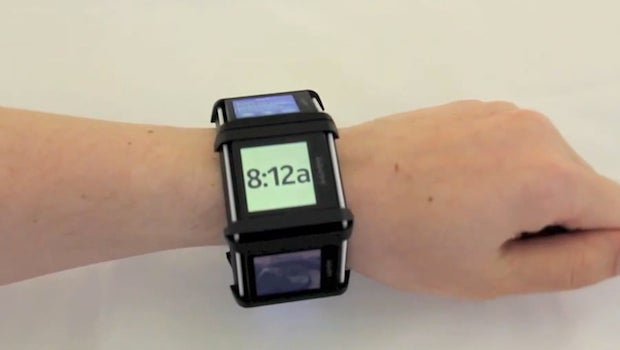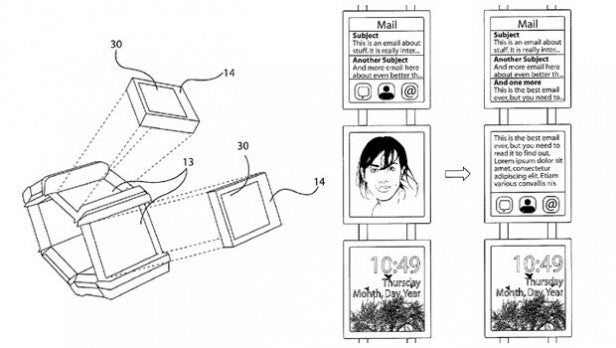Nokia smart watch patented and prototyped

Nokia is working on its own smart watch, as evidenced by a recently revealed patent filing and prototype for an innovative multi-screen concept.
The faltering Finnish mobile phone giant submitted the smart watch patent application detailed below in August of last year. It outlines a modular design that can house multiple displays on a single wrist-worn device.
It would mean that users could simply twist their wrist to view different elements of Nokia’s smart watch interface.
If that sounds a little fanciful, it’s worth pointing out that Nokia got as far as building a prototype for the device, which it calls the Facet, as pictured above. Whilst comically bulky, the mere presence of a working model shows that this patent application was no mere pipe dream.
Of course, the impracticality of such a concept means that we’ll probably never see it materialise in retail form. Nor, for that matter, will Microsoft’s acquisition of Nokia in recent months improve the chances of seeing a multi-sectioned Nokia smart watch hit the market.
The smart watch market appears to be ripe with as many possibilities as pitfalls, however, as evidenced by Samsung’s recent underwhelming attempts to secure an early lead with the disappointing Samsung Galaxy Gear.
The relative success of the Pebble appears to have given heart to many manufacturers that the whole smart watch concept has legs (or should that be straps?). There’s an ominous Apple-shaped cloud on the horizon, however, with the long-rumoured iWatch said to be in development deep within Apple HQ.

Read More: 5 reasons why smart watches are still a dumb idea
Via: Engadget


